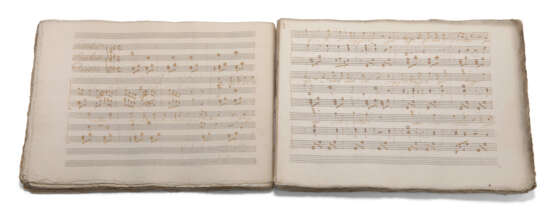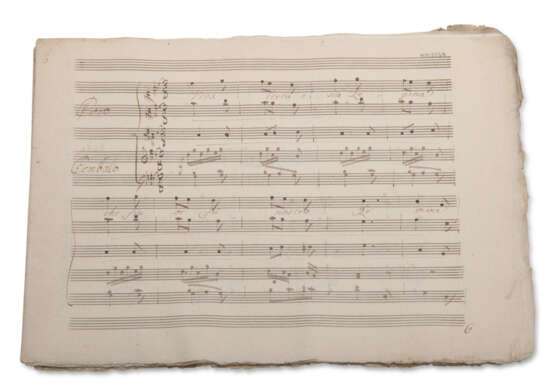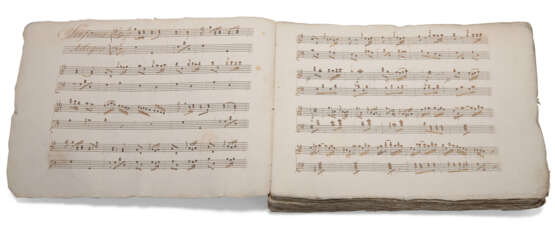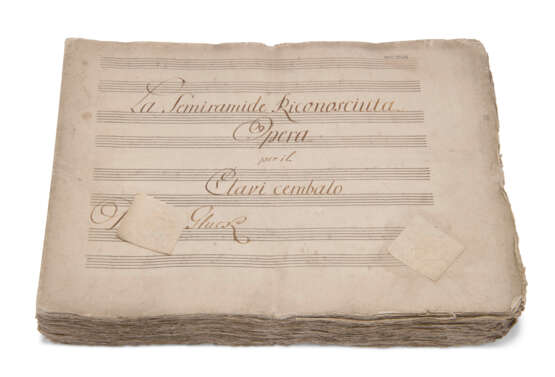ID 1053198
Lot 84 | Christoph Willibald Gluck (1714-1787)
Estimate value
£ 4 000 – 6 000
Contemporary scribal manuscript copy of La Semiramide riconosciuta, Wq. 13, n.p. [?Vienna], n.d. [before 1787]
A rare contemporary manuscript copy of Gluck’s opera La Semiramide riconosciuta – for which the autograph does not survive – authorised with the composer’s seal. Unrecorded by the Gluck-Gesamtausgabe.
Scored for soloists, chorus and keyboard accompaniment, written by a single scribe in brown ink, primarily in three or four systems of 2-3 staves per page. 207 leaves, 235 x 330mm, in 24 gatherings, hand-ruled 8-stave paper, gatherings numbered at inner corner, title page and the libretto text (copied without the recitative passages) throughout in Italian, two blind-stamped papered seals comprising ‘Gluck’ and a lyre on p.1. Unbound, sewn in gatherings as issued. Modern cloth box.
Provenance:
(1) Christoph Willibald Gluck (1714-1787); the composer’s personal seal appears twice on the first page of the manuscript.
(2) Wendy Cruise Rare Books & Manuscripts, London; acquired March 2016.
(3) Schøyen Collection, MS 5569.
Gluck made his debut as an operatic composer in Vienna with La Semiramide riconosciuta, commissioned by the authorities of the imperial city for a gala performance on 14 May 1748 to celebrate the birthday of the young Empress Maria Theresa. For the thirty-three year old Gluck, then leading the life of an itinerant musician, the commission from Vienna represented an honour and a challenge: the choice of libretto, Metastasio’s dramma per musica La Semiramide riconosciuta had already been set to music as a gala opera commissioned for the imperial coronation of Maria Theresa in 1743 and has been expressly chosen to mark the Empress’ birthday. The resulting opera was a critical success and was to have a decisive influence on Gluck’s later career: in 1752, he settled in Vienna, which would become his base for the rest of his life.
The Gluck-Gesamtausgabe lists seven manuscript sources for La Semiramide riconosciuta, only three of which are 18th century. The present manuscript is unrecorded.
| Artist: | Christoph Gluck (1714 - 1787) |
|---|---|
| Place of origin: | Austria, Germany |
| Auction house category: | Letters, documents and manuscripts |
| Artist: | Christoph Gluck (1714 - 1787) |
|---|---|
| Place of origin: | Austria, Germany |
| Auction house category: | Letters, documents and manuscripts |
| Address of auction |
CHRISTIE'S 8 King Street, St. James's SW1Y 6QT London United Kingdom | ||||||
|---|---|---|---|---|---|---|---|
| Preview |
| ||||||
| Phone | +44 (0)20 7839 9060 | ||||||
| Buyer Premium | see on Website | ||||||
| Conditions of purchase | Conditions of purchase |








